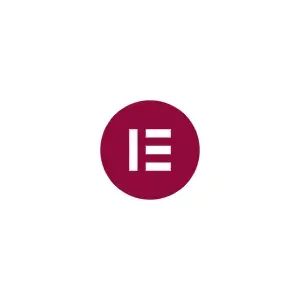When it comes to managing website content on WordPress, there are many tools available to help make the process easier and more efficient. Two of the most popular and powerful tools are Elegant Theme’s Divi theme and the Elementor plugin. In this article, we’ll take a closer look at the key differences between these two tools and help you decide which one is right for your website. Disclaimer: CharlesWorks is an affiliate for Elegant Themes. Some of the links in this post are ‘affiliate links.’ This means if you click on the link and purchase the item, I will receive an affiliate commission. That said, we have been using and recommending Elegant Themes products about 2010 and firmly believe in them.
Introduction
Elegant Theme’s Divi theme and the Elementor plugin are both drag-and-drop builders. Each allows website owners to create custom designs without any coding knowledge. While they share some similarities, there are also significant differences that set them apart from one another. In this article, we’ll explore those differences in depth and help you make an informed decision about which tool is right for your needs.
About the Divi Theme
Divi was launched by Elegant Themes in 2013 and has since become one of the most popular themes on WordPress. Elegant Themes has been in business since 2009 and is known for its quality products and excellent, usually same day, customer support.
One of the key benefits of using the Divi theme is its user-friendliness. The drag-and-drop builder makes it easy to create custom designs without any coding knowledge, and the extensive library of pre-made designs and layouts allows for even greater flexibility.
Divi is also highly customizable, which means that you can make any changes to the design that you want. And with its compatibility with other WordPress plugins, you can easily integrate additional features and functionality into your website.
Another advantage of using Divi is its security and reliable support. Elegant Themes updates the theme frequently, ensuring that it is always up to date and secure. And if you need help with anything, Elegant Themes provides fast and reliable support that is available on the same day.
A downside to using the Divi theme is that Divi is a premium theme, which means that you will need to pay for it. We at CharlesWorks believe it is well worth paying the reasonable price that Elegant Themes charges for it.

About the Elementor Plugin
Elementor is a popular plugin for WordPress that was launched in 2016 by an Israeli company. Like Divi, Elementor is a drag-and-drop builder that allows you to create custom designs without any coding knowledge.
One of the key benefits of using Elementor is its speed. As a plugin, Elementor does not affect the performance of your website as much as a theme would. Additionally, Elementor is a free plugin, which means that you don’t need to pay to use it.
Elementor also comes with a large library of templates and pre-made designs, which can save time and effort in creating a professional-looking website.
However, there are also some downsides to using Elementor. The first is that it may not be as compatible with other WordPress plugins as the Divi theme. We have found that adding Elementor to a Divi site does irreparable harm (meaning make sure you back the site up before doing so!). We haven’t tried adding the Divi theme to a site already built with Elementor installed – but I’d be hard-pressed to believe the result would work. Additionally, while Elementor is free to use, many of the features and templates are only available in its paid version.
CharlesWorks’ Preference for Divi
At CharlesWorks, we have found that Divi is more customizable than Elementor and provides greater flexibility and control over design. This has made it easier for us to create unique and personalized websites for our clients. Additionally, we appreciate the security and reliable support that Elegant Themes provides.
Which One to Choose?
The decision of which tool to use ultimately depends on your needs and preferences. If you want a highly customizable theme with a drag-and-drop builder that is easy to use, then Divi may be the best option for you. However, if you want a faster and more lightweight option with a large library of templates, then Elementor may be the better choice.
Another factor to consider is cost. Divi is a premium theme, which means that you will need to pay for it. At the time of this writing (2/23/2023), Divi costs $89 per year (or $249 for lifetime access) for unlimited websites. Elementor, on the other hand, is a free plugin, which means that it may be the better option if you have a limited budget. However, if you need access to all the features and templates that Elementor offers, you will need to upgrade to the paid version, which starts from $49 per year for 1 site. So, if you are using it on just one site, Elementor is less expensive. However, if you are using it on multiple sites, Divi is more affordable.
Overall, the decision of which tool to use will depend on your specific needs, preferences, and budget. Both Divi and Elementor have their pros and cons, so it’s important to carefully consider each option before making a decision.
The Bottom Lines
Elegant Theme’s Divi theme and the Elementor plugin are both powerful tools for managing website content on WordPress. While both offer drag-and-drop builders that make it easy to create custom designs without any coding knowledge, there are significant differences between the two:
- Divi is highly customizable, secure, and offers reliable support. But it is a premium theme costing $89 per year (or $249 for lifetime access) for unlimited websites.
- Elementor is faster and more lightweight, with a large library of templates. But many of the features are only available in the paid version. Elementor costs from $49 per year for 1 site.
At CharlesWorks, we use mostly Divi for its exceptional customization capabilities and excellent, reliable support. That said, we are seeing more and more websites now that are using Elementor. However, ultimately, the decision of which tool to use will depend on your specific needs and preferences.
Disclosure: Some of the links in this post are ‘affiliate links.’ This means if you click on the link and purchase the item, we will receive an affiliate commission.



